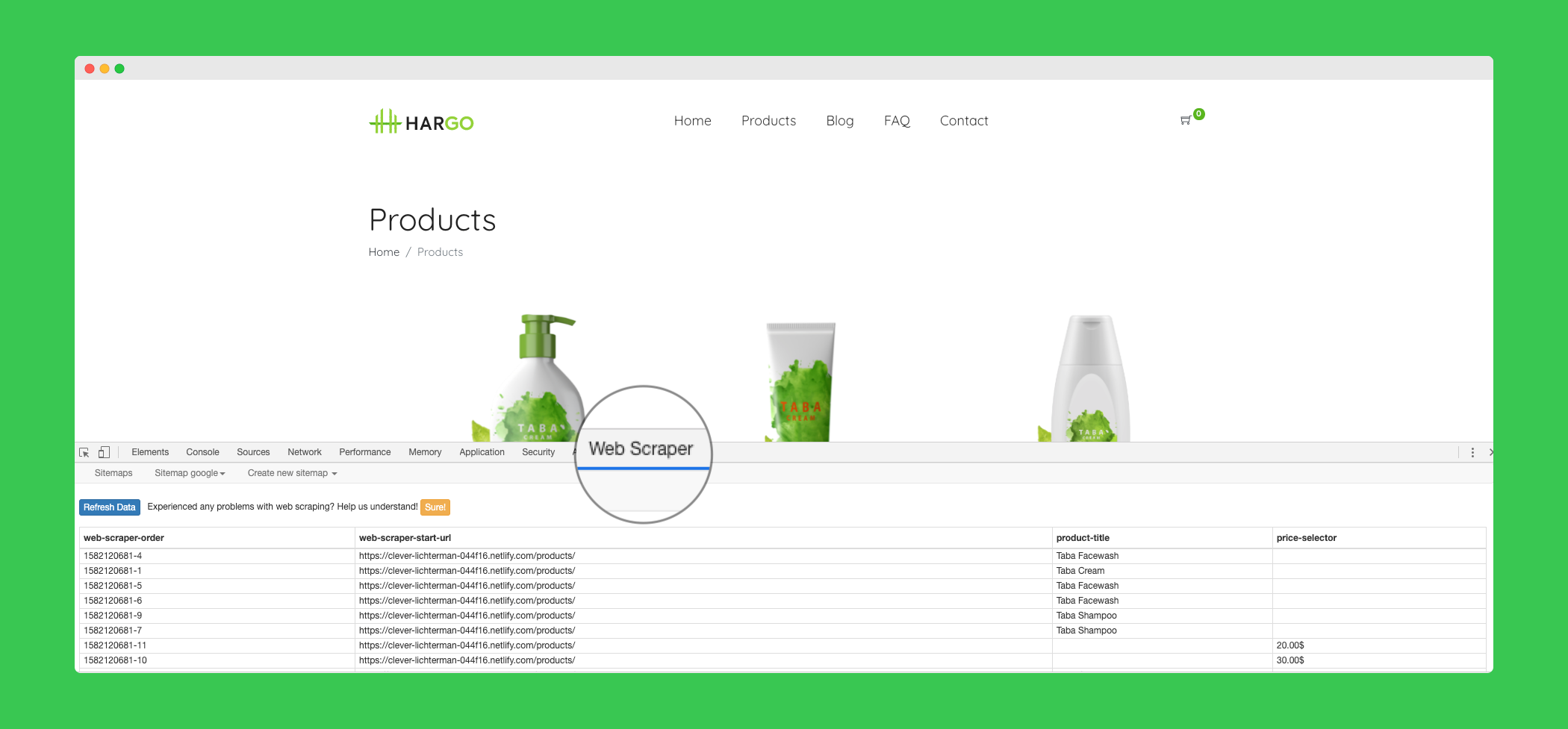
To remain competitive, they’re motivated to offer the best prices possible, since customers usually go for the lowest cost offering.

Victims of price scraping can include travel agencies, ticket sellers and online electronics vendors.įor example, smartphone e-traders, who sell similar products for relatively consistent prices, are frequent targets. The goal is to access pricing information, undercut rivals and boost sales.Īttacks frequently occur in industries where products are easily comparable and price plays a major role in purchasing decisions. In price scraping, a perpetrator typically uses a botnet from which to launch scraper bots to inspect competing business databases. The two most common use cases are price scraping and content theft. Web scraping is considered malicious when data is extracted without the permission of website owners. The combined power of the infected systems enables large scale scraping of many different websites by the perpetrator. Individual botnet computer owners are unaware of their participation. Resources needed to run web scraper bots are substantial-so much so that legitimate scraping bot operators heavily invest in servers to process the vast amount of data being extracted.Ī perpetrator, lacking such a budget, often resorts to using a botnet-geographically dispersed computers, infected with the same malware and controlled from a central location. Malicious scrapers, on the other hand, crawl the website regardless of what the site operator has allowed. Legitimate bots abide a site’s robot.txt file, which lists those pages a bot is permitted to access and those it cannot.Malicious bots, conversely, impersonate legitimate traffic by creating a false HTTP user agent. For example, Googlebot identifies itself in its HTTP header as belonging to Google.

Legitimate bots are identified with the organization for which they scrape.That said, several key differences help distinguish between the two. Since all scraping bots have the same purpose-to access site data-it can be difficult to distinguish between legitimate and malicious bots. A variety of bot types are used, many being fully customizable to:
Webscraper app software#
Web scraping tools are software (i.e., bots) programmed to sift through databases and extract information. An online entity targeted by a scraper can suffer severe financial losses, especially if it’s a business strongly relying on competitive pricing models or deals in content distribution.

Web scraping is also used for illegal purposes, including the undercutting of prices and the theft of copyrighted content.

Webscraper app code#
Unlike screen scraping, which only copies pixels displayed onscreen, web scraping extracts underlying HTML code and, with it, data stored in a database. Web scraping is the process of using bots to extract content and data from a website.


 0 kommentar(er)
0 kommentar(er)
